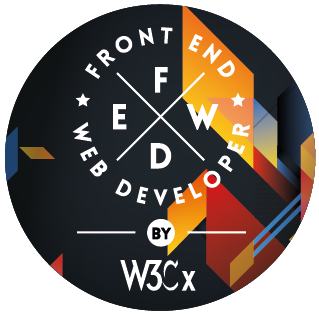News
First Public Working Draft: HTML Microdata
4 May 2017 | Archive
The Web Platform Working Group has published a First Public Working Draft of HTML Microdata. This specification defines the HTML microdata mechanism. This mechanism allows machine-readable data to be embedded in HTML documents with an unambiguous parsing model. It is compatible with JSON, and can be written in a style which is convertible to RDF.
HTML Media Capture is a Candidate Recommendation
4 May 2017 | Archive
The Device and Sensors Working Group has published a Candidate Recommendation of HTML Media Capture. The HTML Media Capture specification defines an HTML form extension that facilitates user access to a device’s media capture mechanism, such as a camera, or microphone, from within a file upload control.
Web Accessibility Tutorials Updated
3 May 2017 | Archive
 Updated Web Accessibility Tutorials on Menus, Page Structure, Forms, Images, Tables, and Carousels were published by the Education and Outreach Working Group.
Updated Web Accessibility Tutorials on Menus, Page Structure, Forms, Images, Tables, and Carousels were published by the Education and Outreach Working Group.
Updates are listed in the changelog. These tutorials show you how to create web content that is accessible to people with disabilities and that improves the user experience for all users. They include general guidance, and specific examples for HTML5 and WAI-ARIA.
Learn more about the Web Accessibility Initiative (WAI).
Two Notes Published by the Digital Publishing Interest Group
3 May 2017 | Archive
The Digital Publishing Interest Group has published two Interest Group Notes, documenting the outcomes of a long standing work exploring the possibilities of Publishing on the Web. The two notes are:
- Web Publications Use Cases and Requirements collects the use cases and the requirements users and publishers face when publishing documents like electronic books, scholarly journal articles, corporate memos and newsletter, or magazine articles in a digital, Web environment. The document includes 25 different requirements spread over a large number of use cases. The technical considerations related to these requirements are further analyzed in the companion document published also as an Interest Group Note.
- Web Publications for the Open Web Platform: Vision And Technical Challenges collects a number of technical issues and outlines a number of possible technical approaches to respond to the requirements listed in the companion UCR document. This document introduces Web Publications, a vision for the future of digital publishing based on a fully native representation of documents within the Open Web Platform. Web publications can be packaged and they can be portable. Web publications work online or offline. Web publications can be accessible, linkable, and annotatable.
These two documents serve as input, alongside other sources and further deliberations, to a proposed, draft Working Group Charter for a Publishing Working Group.
Call for Review: Recommendation to enable decentralised notifications on the Web
3 May 2017 | Archive
The Social Web Working Group has published Linked Data Notifications (LDN).
LDN provides a mechanism for passing notifications around between clients and servers. Notifications can contain any data, and are expressed in RDF. The contents may be used internally by the receiving system, or exposed to a user through a consuming client application. Any resource can advertise a receiving endpoint (Inbox). This is a core building block for interoperable decentralized systems, as it enables servers (which may be personal datastores) to expose endpoints for receiving notifications from both client applications (like social network sites) and other servers (like nodes in a federated social network). Furthermore, the notifications are uniquely identifiable and reusable by other applications, so the data can serve multiple purposes, and people are not locked into using the application which originally generated a notification.
LDN is already demonstrated to work well with several other existing W3C standards, including the Web Annotations Protocol and Vocabulary, and Linked Data Platform servers can serve as LDN receivers out of the box.
W3C Marks Second Anniversary of W3Cx with New Training Offerings for Web Developers
25 April 2017 | Archive
 Just two years after launching its first HTML5 course on W3Cx, W3C is expanding its program offerings with an introductory level course in JavaScript development, created in partnership with University Côte d’Azur. Additionally, W3C is launching a “Front-End Web Developer” Professional Certificate on edX.org, which consists of a suite of five W3Cx courses on the three foundational languages that power the Web: HTML5, CSS and JavaScript. All courses, designed to build or advance critical skills in Front-End Web development, are open for enrollment and will start on May 30. This second anniversary also includes the milestone of exceeding enrollment goals with nearly 400,000 students from every world country. Read more in the press release.
Just two years after launching its first HTML5 course on W3Cx, W3C is expanding its program offerings with an introductory level course in JavaScript development, created in partnership with University Côte d’Azur. Additionally, W3C is launching a “Front-End Web Developer” Professional Certificate on edX.org, which consists of a suite of five W3Cx courses on the three foundational languages that power the Web: HTML5, CSS and JavaScript. All courses, designed to build or advance critical skills in Front-End Web development, are open for enrollment and will start on May 30. This second anniversary also includes the milestone of exceeding enrollment goals with nearly 400,000 students from every world country. Read more in the press release.
